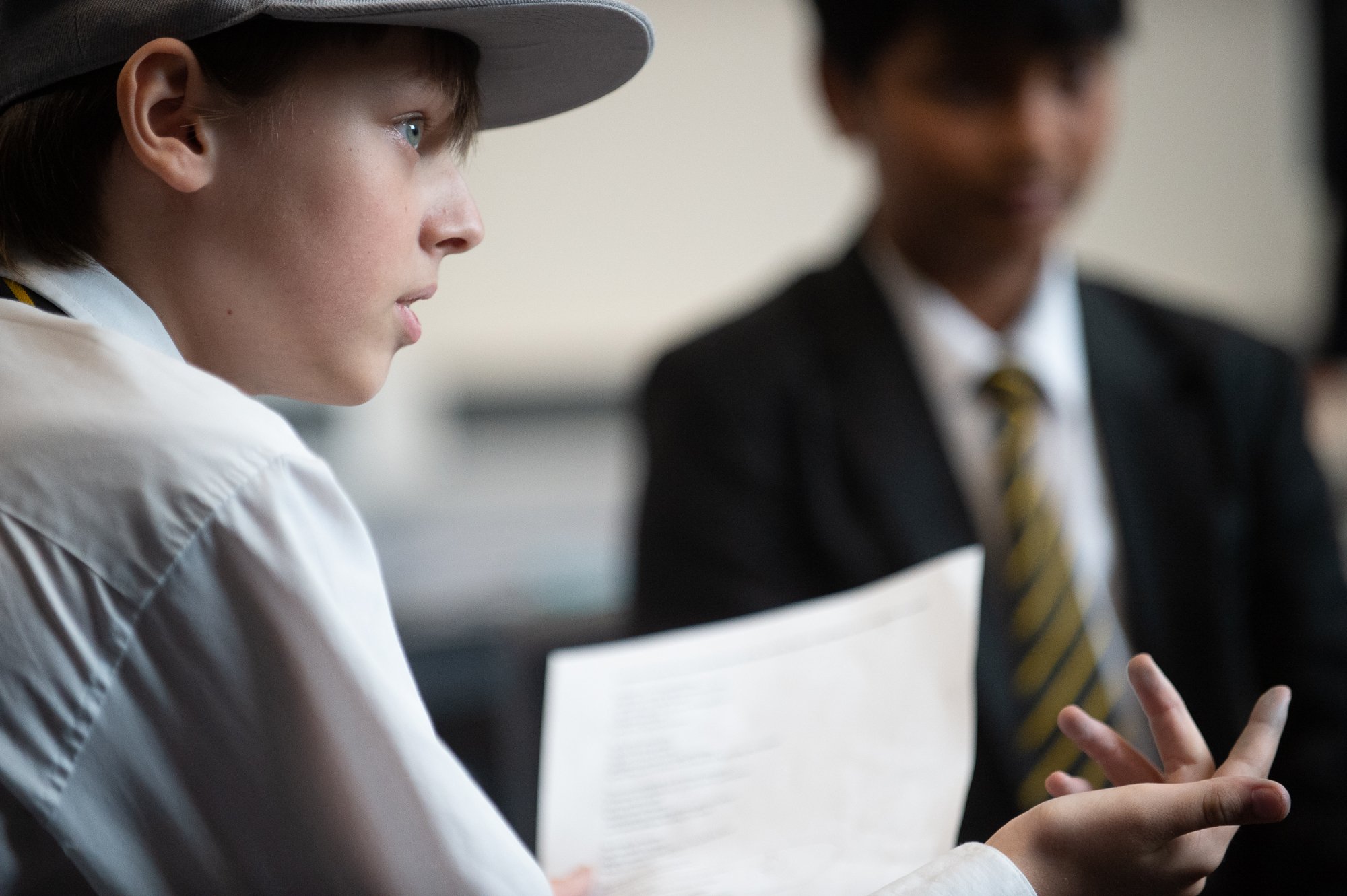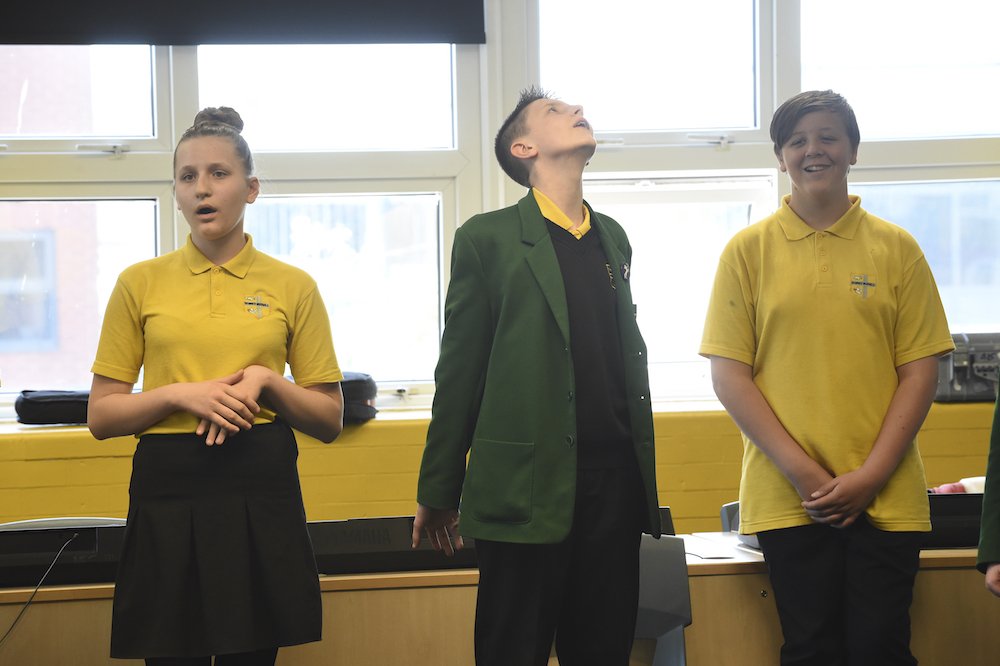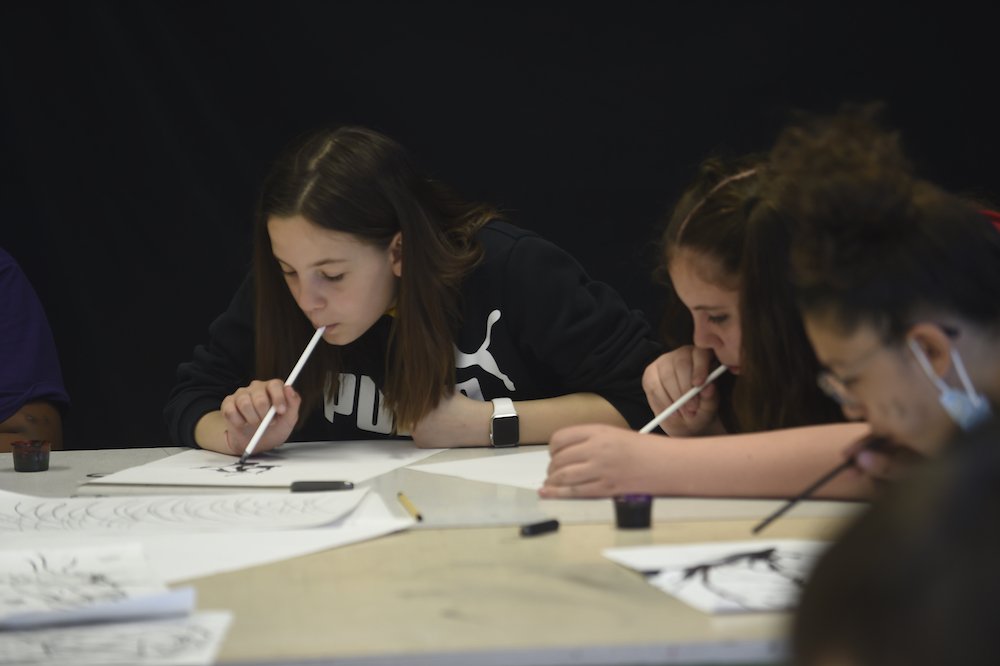






In search of aether
Aether [noun]: from the Greek aithêr, the invisible material thought to fill the empty space above the terrestrial sphere, the pure air breathed by the Gods as opposed to the normal air breathed by mortals on Earth; considered by Aristotle as an energy, a life force, the fifth element after earth, air, fire, and water. The most enduring imaginary concept in scientific history.
This project brings health and environment professionals into dialogue with young people living in areas of poor air quality to enhance learning, share ideas and support action around air pollution.
Initially developed in response to a request from several secondary schools during the Covid-19 pandemic, the pilot project was conceived to deepen understanding of the health impacts of air pollution, using singing as a practical tool to think about the quality of air we are breathing, manage anxiety and encourage collaboration, and songwriting to nurture individual and collective expression.
The project has since developed into a whole school programme engaging staff and pupils from Key Stage 3 to 5, exploring our right to breathe clean air as a framework for inter-disciplinary thinking, supporting teachers to make connections across the curriculum from Science, PSHE, Civics, Economics, Geography, History and English to Art, Design and Music, and providing access to professionals working in health, human rights, the environment and creative practice, to enhance learning beyond the curriculum.
The project has nurtured an otherwise unheard youth voice and connected professionals to communities they otherwise struggle to engage. My lungs written and performed by 300 Year 7 pupils at Riverside School (Barking Riverside) was presented at the official opening of London Climate Action Week 2023, with pupils speaking to climate leaders and policy makers about the importance of tackling air pollution and their right to access the head space to imagine positive visions of the future.
In order to address air pollution which is considered to be one of the greatest health challenges of the 21st century, we need to think in creative and innovative ways. We must learn how to speak to different audiences and in different ways so we can effectively communicate air pollution as a health risk and promote changes in practices. A good way to start doing this is by bringing different disciplines together. Initiatives like this one allow for these conversations to start, where scientists and artists can work together to reframe the way we talk about air pollution and promote action.
Dr Diana Varaden, National Institute for Health Research HPRU in Health Impacts of Environmental Hazard
In Search of Aether is authentic, project-based learning, where subjects are not the focus, but an integrated vehicle for achieving a preferred future. The passion and expertise studio2909 have brought, using the arts to raise awareness and action change while at the same time rapidly developing young people’s skills through high level engagement has been an immense learning experience for the students and staff alike.
Head teacher, Riverside School
Selected by the Royal College of Paediatrics and Child Health as a best practice case study of young people taking action on their health.





Watch this short video by pianist and composer Pete Letanka sharing some of his thoughts on our right to breathe and how to use music to convey ideas. One of the initial digital resources supplied to schools during the first Covid lockdown to support creativity at home as our focus on air pollution deepened into an urgent need to support young people to feel able to breathe and make sense of the world, to imagine positive futures and have a voice on tackling social injustice and health inequalities.
Listen to the London Sustainable Schools Forum podcast featuring the pilot project developed with Riverside School, Sydney Russell School and Westminster City School for London Climate Action Week’s Schools Climate Summit 2021
If you are interested in a conversation about how we could adapt the project to work with your organisation or community, please contact us
with huge thanks to our collaborators and funders
Dr Diana Varaden, Environmental Research Group, School of Public Health Imperial College London
Dr Stephanie Wright, Lecturer at the Medical Research Council Centre for Environment and Health, Imperial College London
Dr Liza Selley, Air Pollution Toxicologist, University of Cambridge
Dr Ian Mudway, Senior Lecturer in the School of Public Health, Imperial College London
Dr Joseph Levermore, Research Assistant in the School of Public Health, Imperial College London
Dr Emma Garnett, Senior Research Fellow at the School of Population Health and Environmental Sciences, Kings College London
Mr Sasha Stamenkovic, Consultant Thoracic Surgeon and Director of Robotic Surgery, Barts Health NHS Trust
Annalisa Sheehan, PhD student, MRC-PHE Centre for Environment and Health Researchers Society
Aga Serugo Lugo, Pete Letanka, Jo Lewis, Freya Wynn-Jones, Anthony Roth Costanzo, Susanna Hurrell, Ross Ramgobin, Lucy Lill, professional artists
Riverside School, The Sydney Russell School, Westminster City School, Mulberry School for Girls
Three Monkies Trust, Riverside School, Barking Riverside, Barking and Dagenham Cultural Education Partnership and the many generous individuals who donated to our Crowdfunding campaign during the pandemic
